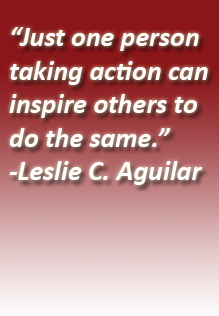Rev. Cedric Portis
The Rev. Cedric Portis Sr. will give the invocation to open the 2009 Draft Family Fitness Day. Rev. Portis is a great fit for the event, as he is an example of what people attending the Draft Family Fitness Day can achieve. He changed his lifestyle, his eating and exercise habits and lost more than 80 pounds.
The Rev. Cedric Portis Sr. will give the invocation to open the 2009 Draft Family Fitness Day. Rev. Portis is a great fit for the event, as he is an example of what people attending the Draft Family Fitness Day can achieve. He changed his lifestyle, his eating and exercise habits and lost more than 80 pounds.
Story courtesy of the St. Louis Post-Dispatch:
One day when the Rev. Cedric Portis Sr. stood before his congregation preparing to tell the youth to stay away from drugs and resist the sins of addiction, he suddenly felt self-conscious.
You see, he had an addiction, too: food. That would account for the 290 pounds on his 5-foot-11 frame.
The extra weight was difficult to see, hidden behind the muscle from powerlifting weights, "as long my chest was bigger than my stomach."
He was quite strong - squatting 600 pounds and bench pressing 400.
Still, over time, he realized he was a classic junk food junkie.
At one sitting, he recalls, he downed two medium Pizza Hut meat lover's pizzas and a two-liter bottle of regular Pepsi. Late that night, he was hungry again.
"If I went to a buffet and didn't get six or seven plates, I felt like I wasted my money," he recalls. "Eating was my hobby."
He even developed a way to eat more after he was full. He'd drink soda, then walk around.
"I felt full for a while, then I learned how to eat a lot," he says. "I called it shakedown."
He admits that with the lifting and his athletic background he had a sense of security - probably undeserved - about his health.
In the beginning
He'd been an athlete at Normandy High School; in fact, he was voted best built in his senior year.
He played linebacker for the football team at the University of Missouri-Rolla.
When he graduated from college in 1994 with an engineering degree, he weighed a strapping 215 pounds.
Although he continued to lift weights, he wasn't working out with his team for hours every day - but he continued to eat as if he were.
Between 1995 and 2000, he picked up 35 pounds, on average about a half pound a month, give or take an ounce.
"Food was a drug," he said. "I didn't eat because I was hungry; I just ate. It was like watching TV; it was a fun thing to do. I call it sport eating."
That partly came from the stress of his job as an engineer as he worked on a torment-ridden MetroLink project.
The change
At the same time, as the 20th century drew to a close, Portis was becoming more enamoured with the ministry. He accepted a spiritual beckoning to become a minister. He started as a part-time preacher at a small Baptist church in Kinloch.
That happened about the same time he chose to turn his life around and improve his health.
Although many people thought he was big and muscular, he knew the truth: He was overweight.
"It was like I looked around one day and said, 'I'm not supposed to be here,'" he says. "Something has to change."
The message he got was bound to happen - not a heart attack, not a stroke, not even a sickness. He was a youngster in 2000, a mere 30-something years old.
God whispered in his ear: "You're a hypocrite."
Normally, he could shake off criticism; but not from God.
"I looked at myself in a mirror and asked myself, 'How can you be in the pulpit talking about drugs and you can't stop eating?'"
Portis' condition
Portis was a classic carbohydrate addict.
That's an unofficial term used for folks who crave refined flour and refined sugar. Officially, it's not a true addiction where a chemical takes over certain neurological functions.
Still, the symptoms and conducts are the same as an addiction: an uncontrollable craving that's never satisfied, along with planning your life around the next dose.
Portis craved bread - white, refined flour: in a basket with appetizers, under a pizza or wrapped around fried meat in the form of breading. He craved sugar, mainly in sodas.
He craved fats - butter on the bread, oil on the food and fats in the meat. He craved salt, which joined the fat to create flavor.
This regimen sends anyone's blood sugar and insulin levels into chaos and with it his ability to control his hunger.
Weightlifting hid the problem. His bulky, hungry muscles ate many of the calories and protected him from cardiovascular disease and diabetes, but not obesity.
Fast changes
His motivation became setting an example for his congregation, especially young people. He had fallen out of balance, living a life in contradiction to the ministerial messages of self-control and responsibility.
He turned to the things he told others to use: discipline strengthened by love, love of his God, his family and his congregation.
"If you do it just to look good, you're going to fail," he says.
He started with his eating habits. He increased his fruits, vegetables and lean meat and cut way back on refined sugar and refined breads.
He changed his workout from weightlifting to cardiovascular training.
He built a gym in his basement - an elliptical machine, a treadmill, a weight bench and even mirrors on the wall. He installed diversions: a television, to distract him from long cardio sessions.
It wasn't easy. A meaty pizza or basket of multi-colored bread and herb butters, or steaming fried chicken wings could sing some pretty hymns.
He prayed hard to not listen.
His body took a little less than a year to become accustomed to the new lifestyle.
He has a process he likes to share - that's what preachers do.
The steps He calls it his fitness three-step program.
- "No. 1 is spiritual," he says. "Part of my worship to my God is caring about his temple. That's my motivation.
- "Second is mental. You have to know what you're doing. You must know your body. I see people who work out for hours with no results. You read, you study, maybe even work with a trainer."
This, he says, is when he learned, "If you work off more than you take in, you can't help but lose weight."
- Third "is physical. You put what you learn into practice. You eat healthier, and you work out properly."
The lesson is: "People give up because they start with No. 3," Portis says. "They succeed when they start with No. 1."
What happened next
All of the parts began working together. In the first four months of 2001, he dropped 40 pounds.
The rapid weight loss was because he finally had control of his gorging on refined sugar and white flour.
He got his carbs from vegetables and fruits. He was lucky to be young and in fairly good condition with hungry muscles.
By 2003, he'd lost 80 pounds.
Today
During this time, he earned a divinity degree. That led him to a part-time apprenticeship with a church in Kinloch. Later he became assistant minister at the Third Presbyterian Church in north St. Louis County.
Portis had grown up in that church, and he had worked there for several years as assistant minister. Three years ago, the congregation invited him to the top job when the senior minister retired.
Nowadays, he continues to live his message. Portis recently joined a contest called "Pastor's Fitness Challenge." In early February, three ministers challenged members of their congregations to lose more weight than their ministers.
Portis used this to get off a few pounds he'd gained in the past four years. He dropped seven pounds in the first week of the challenge and was at 222 at last check-in.
---
A typical day before
Breakfast: Each day was five or six pancakes, a half dozen eggs and a pound of bacon.
Lunch and dinner: A lot of fast food or big meals - such as an entire pizza with chicken wings.
A typical day today
He tries to drink more than a half-gallon of water a day. Between meals, he snacks on granola bars and fruit.
Breakfast: A granola bar or a bowl of raisin bran.
Lunch: A granola bar. Or, he'll have a grilled chicken sandwich and maybe a salad with no appetizer or dessert.
Dinner: Grilled fish such as tilapia, vegetables, a sensible portion of pasta or other carbohydrate and lots of water. He cooks with olive oil.
Exercise
He works out about an hour a day in the gym he built in his basement. He owns an elliptical trainer, a treadmill and several weight-lifting systems.

